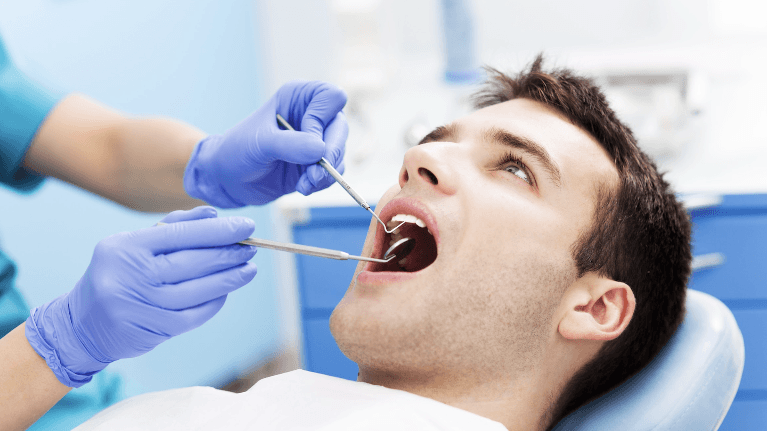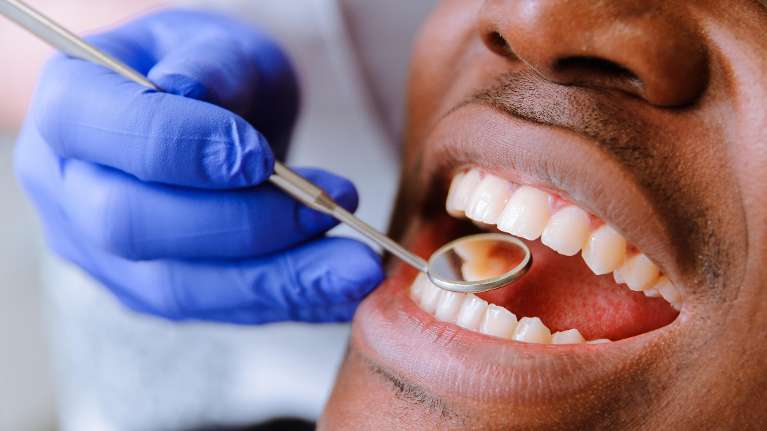
Good and responsible oral habits, such as brushing your teeth twice a day and visiting your dentist regularly for an oral check-up, can keep bacteria and other harmful gum diseases at bay. Without proper oral hygiene, bacteria can stay in the mouth and lead to oral infections, such as gum disease and tooth decay. One of the most common types of gum disease is gingivitis. In this blog post, we will discuss what gingivitis is and how it can be prevented.
What Is Gingivitis?
Gingivitis is a mild, common, early form of gum disease that can cause swelling, irritation, and redness of your gingiva (the part of the gum around the base of the teeth). It usually occurs because a layer of plaque or bacteria collects on the teeth. While gingivitis does not always come with symptoms, it can make the gums tender, swollen, and red. Although it is a non-destructive periodontal condition, it can convert into periodontitis if proper treatment is not sought. This is a more serious condition and can lead to loss of teeth.
According to Health Direct, the most common cause of gingivitis is poor oral hygiene. If you start noticing sighs like puffy or red gums that bleed while brushing teeth, you must pay a visit to your dentist immediately. Sometimes the cases are mild and people don’t even know that they have it; however, it should be taken seriously and treated at the earliest.
How to Prevent Gingivitis?
Maintain Proper Oral Hygiene
Good oral hygiene implies that you should brush your teeth twice every day for at least 2 minutes, in the morning and at night before going to bed. In addition, flossing also prevents gum disease and promotes good oral health. You can also choose to brush your teeth after every meal or snack to maintain optimum oral hygiene habits. Flossing before brushing allows you to get rid of the loosened food particles and bacteria that may get stuck between the teeth.
Regular Dental Check-ups
You should visit your dentist regularly for check-ups and cleanings, usually after every 6 to 12 months. You may require professional cleaning more often if you carry certain risk factors, such as having a dry mouth, smoking regularly, or taking certain medications. Sometimes annual dental x-rays can help identify certain conditions and diseases that may not be otherwise visible during a visual dental examination. Regular visits to your dentist for check-ups and cleaning can also monitor your oral health for any dental changes or abnormalities.
Good Health Practices
Proper oral health practices, such as managing blood sugar and eating healthy can protect you from developing diseases, such as diabetes. Good health practices are also essential to maintain healthy gums and teeth.
Gingivitis often gets resolved with good oral hygiene practices and healthy eating habits. Frequent brushing and flossing are imperative to maintaining strong gums and teeth. Also, it is important to visit your dentist on a regular basis to avoid further complications.
For more details and inquiries, please get in touch with us so that we may assist you.



